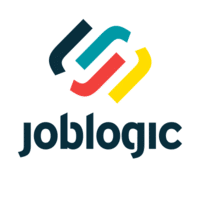Equity Investment Market Update
Q1 2023
542
deals completed
-14%
from Q4 2022
-37.04%
from Q1 2022
£2.38b
invested
-35.5%
from Q4 2022
-67.5%
from Q1 2022
Data for this report was finalised on 14 April 2023.
To be included in our analysis, an investment must be:
- Dated between 1 January 2013 to 31 March 2023
- Be publicly announced
- Some form of equity investment
- Secured by a non-listed UK company
Headline funding figures
As suspected, the UK private company ecosystem felt the effects of the global funding downturn, with only 542 deals announced in Q1 2023. That’s a 14% decrease from Q4 2022 and a massive 37% drop from the same quarter last year. This marks the second instance of a decline in deal volume from Q4 to Q1 in the last decade, following the 7% decrease from Q4 2015 to Q1 2016.
The amount invested also took a hit, with only £2.38b deployed by investors in Q1 2023—a 36% decrease from Q4 2022. And with Q1 2022 being the top-performing quarter for equity investment in the UK on record, both in terms of the number of deals made (843) and the amount raised (£7.28b), it’s not surprising that Q1 2023 saw a whopping 67% drop compared to the same quarter last year.
The last quarter marks the lowest Q1 performance since 2018 in terms of the amount of equity investment raised. However, deal numbers are not far off from Q1 2020. This quarter, the market has faced many challenges such as decreased consumer and business confidence due to inflation and associated interest rate rises. It begs the question: could we be seeing a return to normalcy in the wake of the extraordinary stimulus measures in response to the pandemic? Or has investor sentiment swung too far the other way in response to a more challenging macroeconomic environment? Ever the optimists, we are hopeful for the former.
Sectors
Fintech and cleantech both saw a decline in announced deals this quarter from Q4 2022. Fintech deals fell for a fourth consecutive quarter, falling 37% from Q4 2022, whilst cleantech deals fell by 8% in the same period. Artificial intelligence withstood the declining tech investment trend by maintaining the same number of deals from Q4 2022.
Amid supply challenges in the agricultural sector, agritech had a sizeable increase in deals of 83% from Q4 2022, and a 26% increase in equity investment received. The sector witnessed a record 11 deals in Q1 2023.
Blockchain companies continued to buck the investment trend. In 2022, the sector saw a slight (5%) uptick in deal volume from 2021. This upwards trajectory continued as blockchain deals increased by 56% (from 9 to 14) in Q1 2023 from Q4 2022. Though the amount raised from Q4 2022 to Q1 2023 has fallen by 18%. This is indicative of a growing appetite for the sector, set against a background of declining equity funding.
Stages of evolution
Deal value declined across every stage of evolution in Q1 2023, both from the last quarter and from the same quarter last year. The established stage witnessed the biggest decline in investment amount from Q1 2022, as it fell by 85%. This stage also saw the greatest fall from Q4 2022 at 43%. In comparison, the seed stage fared the best, falling by 15% from Q1 2022 and 26% from Q4 2022.
Deal volume also decreased across the board from Q1 2022. The established stage once again was the worst off with numbers falling by 45% from the same quarter last year and by 21% from Q4 2022. Considering the headlines on funding drying up, growth stage deal numbers have remained steady, giving cause for prudent hope. Of the other stages, the venture stage saw the smallest fall from Q4 2022 (11%).
There were 154 first-time raisers this quarter (down 6% from Q4 2022), securing a combined £393m in equity investment (down 27% from Q4 2022).
Regional trends
From a regional equality perspective, the distribution of equity funding in the UK has improved, though the Capital still secured the greatest proportion of announced equity deals. This quarter we saw 43% (230) of the deals go into London, down 10% from Q1 2022, and 7% from 2022 overall. The South of England received 68% of the total deals, down 4% from 2022. The South East received 13% of deals, the South West 5%, and the East of England 8%.
In comparison, the North of England (Yorkshire and The Humber, the North East and the North West) secured just 12% of deals, a proportion which is unchanged from 2022. And in keeping with previous quarters, Northern Ireland received the smallest share of equity rounds, at just 1%.
Deal numbers in Scotland remained steady at 6%, similar to Q1 2022. Meanwhile, Wales saw an uptake in deal volume, accounting for 24 (5%) of this quarter’s deals. This is up from 2% in Q1 2022.
Looking at the amount invested, regional disparity once again is improving. The Capital received 61% of the total funds raised in Q1 2022, and 69% in 2022 overall. This quarter saw 56% (£1.28b) of the total pounds deployed to London-based companies.
While regional equality is a desirable outcome, there are likely a multitude of factors causing this shift such as the drawing back of international investors and the recent depreciating appeal of tech companies.
Investor types
Despite venture capital and private equity funds tightening the belt, this quarter saw a slight uptake (1%) in the number of deals made by these funds from Q4 2022. This was also the most active investor group in the UK’s private company ecosystem by total number of deals, with 241 rounds announced during the quarter.
All other major fund types had reduced or stagnated investment activity in Q4 2023. With deal volume falling by 45% from Q4 2022, crowdfunding saw the biggest decline. Angel investment saw the second largest fall from Q4 2022, at 33% (from 61 to 41 deals).
The number of rounds with participation from corporate funds fell 18%, whilst there was no change in the deals made by university funds.
Deal sizes
With investors taking a more cautious approach to deploying capital, both the number of megadeals (rounds worth £50m+) and gigadeals (rounds worth £100m+) has fallen. The number of announced megadeal rounds fell by 44% from Q4 2022, whilst gigadeals took an even bigger hit, falling 86%. In turn, gigadeal numbers have fallen to their lowest since Q2 2020. With a total of six megadeal and gigadeals closing in Q1 2023, this has been the worst quarter for large equity rounds since Q2 2018.
Going hand in hand with declining deal volume, the amount of capital raised from these deals has also fallen significantly. The combined value of megadeals fell by 51% from Q4 2022 and by 76% from Q1 2022. Meanwhile, the combined value of gigadeals declined by 87% from Q4 2022 to Q1 2023. Stark as the numbers seem, it is reflective of current macroeconomic trends.
Biggest deals of the quarter

1. Raylo*
Amount: £110m
Deal Date: 30/01/2023
Location: London
Sector: Consumer electronics hardware
Raylo allows consumers to lease a range of new and refurbished technology products—such as phones, laptops and watches— on a flexible, subscription basis. Investors in the deal include NatWest Invoice Finance and Quilam Capital.
*Equity and loan

2. Zopa
Amount: £75.0m
Deal Date: 02/02/2023
Location: London
Sector: Fintech
Zopa operates an online bank which offers services such as personal loans, credit cards, and car financing. Augmentum Fintech, Davidson Kempner Capital Management, and SilverStripe Investment Management backed the fundraising.

3. Little Houses Group
Amount: £71.0m
Deal Date: 16/01/2023
Location: London
Sector: Leisure and entertainment
Little Houses Group operates a number of family clubs and nurseries, that also contain fitness classes, gyms, and cafes. The round was led by lifestyle and entertainment investor, Imbiba.

4. EO Charging
Amount: £66.1m
Deal Date: 21/02/2023
Location: East of England
Sector: Automotive
EO Charging develops and manufactures smart charging technology for electric vehicles. Investors in the round include Vortex Energy and Zouk Capital.

5. Joblogic
Amount: £60.0m
Deal Date: 21/03/2023
Location: West Midlands
Sector: SaaS
Joblogic develops a workflow management application—including tools such as job scheduling and invoicing—specifically for trade industries. The round was led by Axiom Equity.

6. Superscript
Amount: £45.0m
Deal Date: 09/01/2023
Location: London
Sector: Insurtech
Superscript operates an online platform which provides commercial insurance services. Investors in the round include Base Capital, BHL Holdings, Concentric, and Hartford Ventures.

7. Quantum Motion
Amount: £42.0m
Deal Date: 20/02/2023
Location: London
Sector: Artificial Intelligence
Quantum Motion develops and commercialises silicon-based quantum computers. The round had a whopping 11 investors including British Patient Capital, IP Group, Octopus Ventures, and Porsche Ventures.

8. Envisics
Amount: £41.9m
Deal Date: 09/03/2023
Location: South East
Sector: Artificial Intelligence
Envisics is an AI startup that develops holographic in-car technology and HUDs (head-up displays) for automakers. Hyundai, InMotion Ventures and Stellantis backed the fundraising.

9. GeoPura
Amount: £36.0m
Deal Date: 21/02/2023
Location: East Midlands
Sector: Cleantech
GeoPura produces hydrogen fuel using renewable energy. Investors in the round included GM Ventures, Siemens Energy Ventures, Sustainable Impact Capital, and Swen Capital Partners.

10. The Bank of London
Amount: £33.0m
Deal Date: 08/02/2023
Location: London
Sector: Fintech
The Bank of London develops banking software as well as a clearing agency and transaction bank. The unicorn company raised funds from three existing investors in this round: 14W, ForgeLight, and Mangrove Capital Partners.

